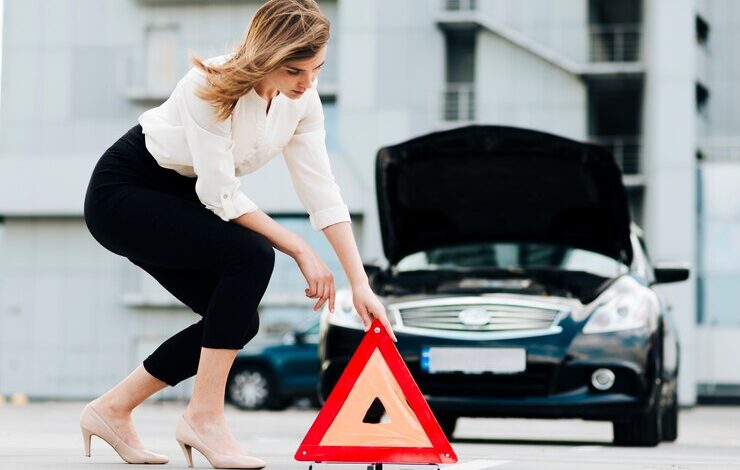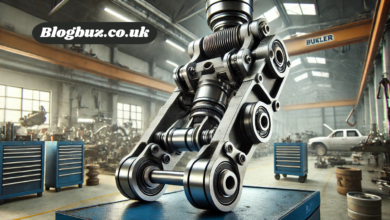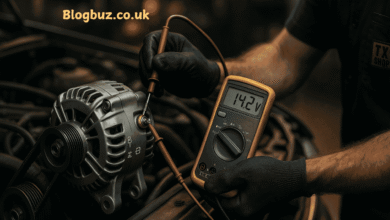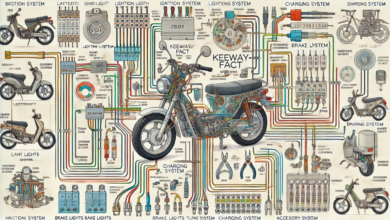Common Mistakes to Avoid When Scrapping Your Car

Scrapping your car can be a smart move when it’s no longer roadworthy or too costly to maintain. Still, it’s important to approach this task carefully to avoid common pitfalls. Starting with the basics, ensure that you are working with a reputable scrap dealer or if you prefer an easy online solution then click here. This prevents potential scams or illegal transactions. Always have your car’s documentation in order, such as the vehicle title, to ensure a smooth process.
Accepting cash payments from scrap dealers might seem convenient, yet it’s important to note that cash transactions for scrap metal are illegal in some regions. This not only protects you but also ensures you stay on the right side of the law. Paying attention to the legalities and required paperwork will save you from unnecessary hassles.
Being informed about your car’s condition is also vital to getting a fair deal. Consider its performance and maintenance history to gauge whether scrapping it is more economical than repairing. By understanding these factors, you can avoid making hurried decisions that might not be in your best interest.
Not Checking the Authorisation of the Scrap Yard
When scrapping your car, it’s essential to use an Authorised Treatment Facility (ATF) to stay compliant with legal requirements and minimise environmental impacts. Unlicensed scrap yards pose significant risks, including legal issues and improper handling of hazardous materials. Verifying a scrap yard’s credentials ensures your vehicle is recycled responsibly and contributes to reducing your carbon footprint.
Why Only Use an Authorised Treatment Facility (ATF)?
Choosing an ATF ensures that your car is dismantled and disposed of legally. These facilities follow strict environmental standards, reducing emissions and pollution. ATFs recycle automobiles in a way that effectively manages materials like oil, metals, and plastics that could harm the environment if mishandled.
Recycling through an ATF also helps lower your carbon footprint. Materials are repurposed, reducing the need for new raw resources. This contributes to less energy consumption and fewer CO2 emissions during the production of new materials.
Risks of Using Unlicensed Scrap Yards
Unlicensed scrap yards might not adhere to proper recycling practices. These yards could release harmful substances like oil or batteries into the environment. Uncontrolled emissions and pollution are significant concerns when dealing with such facilities.
Using an unauthorised yard can also lead to legal complications. If your vehicle is improperly disposed of, you might be held accountable. Ensuring the facility is licensed protects you from potential fines and legal troubles.
How to Verify a Scrap Yard’s Credentials
To ensure a scrap yard is authorised, start by checking if it is listed as an ATF on the government’s official website. Most licensed facilities display their certification prominently.
You can also request documentation that confirms their authorised status. Speaking to the staff about their processes can give you further compliance assurance.
Being thorough in this step guarantees that your car is recycled in an environmentally friendly manner. It also aligns with legal obligations, offering peace of mind when scrapping your vehicle.
Not Getting a Certificate of Destruction (COD)
When scrapping your car, ensuring you receive a Certificate of Destruction (COD) is crucial. It provides legal proof that your car has been scrapped and protects you from future liabilities. Failure to secure this document can lead to numerous issues.
Why a COD Is Important for Legal Proof
A Certificate of Destruction serves as your formal proof that your car has been properly scrapped. This is vital when you want to confirm that you are no longer responsible for the vehicle. The COD is issued by an Authorised Treatment Facility (ATF), which ensures that the vehicle is disposed of in an environmentally friendly manner.
Without the COD, your car may still be recorded as active, which means that you might be held liable for any traffic offences or fines related to the vehicle. This document is your safeguard against any future disputes over ownership or legal issues. It is also necessary if you want to qualify for any potential scrap car schemes or government incentives that require evidence of scrapping.
Consequences of Failing to Obtain a COD
Failing to obtain a COD can result in serious complications. Your car could still be listed as yours, which means you might continue to incur charges such as road tax or insurance fees. In worst-case scenarios, unscrapped vehicles could be used for illegal activities, and since they are technically still under your name, this could implicate you in unwanted legal matters.
There are also environmental regulations to consider. The official scrapping process involves disposing of hazardous materials safely. Without a COD, there’s no assurance that your car was dealt with responsibly, which could lead to environmental fines. Securing a COD thus ensures your compliance with legal and environmental standards.
How to Request a COD from the Scrap Yard
To obtain a Certificate of Destruction from the scrap yard, ensure you choose an Authorised Treatment Facility (ATF). Verify their credentials to confirm they are licensed. When you deliver your car to the facility, request the COD explicitly as part of your transaction.
Make sure you provide all necessary documents, such as your vehicle registration and proof of identity. Once the car is scrapped, an ATF is required to issue a COD within seven days. Keep this document safe for your records. If you do not receive it, follow up promptly to avoid any potential complications.
Leaving Personal Belongings in the Car
Forgetting to remove personal items from your car before scrapping it can lead to inconvenience and potential loss. It is crucial to thoroughly check every part of your car for anything you might need. Following some practical tips can help ensure you don’t leave anything behind when it’s time for collection.
Essential Items to Remove Before Scrapping
Before scrapping your car, make a list of vital personal items to take out. Begin with documents such as the insurance papers and any service records, as these may contain sensitive information.
Look out for valuables like electronic devices and chargers, as well as personal effects including sunglasses or CDs. Remember to check areas such as the glove compartment, under the boot, and seat pockets, as small items often get overlooked there.
Besides personal items, consider removing aftermarket add-ons like GPS systems or car mats, especially if you plan to use them in another vehicle. Being methodical about this step helps ensure you don’t lose important belongings.
Tips for Thoroughly Checking Your Car
To avoid missing any belongings, check each compartment one by one. Start by systematically going through the car’s interior, including under the seats and in all storage pockets.
Don’t overlook the boot, as it often holds items like tools or emergency kits. Utilise a checklist to ensure you’ve covered every spot. Remember to inspect holders and pockets that may have been added aftermarket.
Perform a final walk-around of your car to make sure nothing is left. It’s a simple step, but can help prevent last-minute surprises when the recovery team arrives.
How to Avoid Last-Minute Scrapping Hassles
Plan your checks ahead of the collection date. Setting a specific time to empty your vehicle ensures a thorough review without rushing. Leave no part of the car unchecked, from the seatbacks to under the floor mats.
If possible, ask a friend or family member to double-check for missed items. A different perspective can often spot what you might overlook.
Finally, keep your removed personal belongings in a safe location. Organising your items ahead of time can minimise stress and make the upcoming scrapping process smoother.
Not Informing the DVLA
When scrapping your car, it is crucial to notify the DVLA. Failing to do this can lead to legal issues and financial penalties. It’s important for car owners to understand the correct process and consequences of not following it.
Why You Must Notify the DVLA When Scrapping Your Car
You must notify the DVLA as it keeps their records up to date and ensures that the car is no longer registered to you. This step is important because you’re releasing ownership of the vehicle, which means you are not legally responsible for it anymore.
Without telling the DVLA, you might still appear as the car owner in their records. This can create problems if the vehicle is involved in any legal or financial issues after you have scrapped it. Therefore, notifying the DVLA protects you from potential disputes.
Potential Fines for Failing to Inform the DVLA
If you fail to inform the DVLA about scrapping your car, you could face serious penalties. There is a potential fine of up to £1,000. This fine applies because the DVLA needs to have accurate records of the vehicles on the road and their ownership.
Also, if your car is still listed as active and in your name, you might receive fines or penalties related to road tax or insurance. In some cases, you could even be held accountable for any offences or misuse involving the car. It’s essential to avoid these issues by ensuring the DVLA is informed.
How to Properly Inform the DVLA of Car Scrapping
To inform the DVLA, complete section 9 of your V5C registration certificate, also known as the logbook. This section should be sent to the DVLA. Make sure you provide accurate and full details about the scrap yard and the date of scrapping.
Alternatively, you can notify the DVLA online through their official website. This process is typically quicker and you receive instant confirmation. Keep a record of any correspondence or confirmation, as it serves as proof that you have notified the DVLA properly.
Not Comparing Scrap Prices
When scrapping your car, comparing prices from different yards can lead to better payouts. Knowing the factors that affect value and how to spot lowball offers is key. Here’s what you need to do.
How to Get Multiple Quotes from Different Scrap Yards
To maximise your payout, it’s important to obtain quotes from various scrap yards. Start by listing nearby yards and visiting their websites or calling them.
Tip: Make sure to provide accurate details about your vehicle, like its make, model, and condition. This helps in getting a precise quote.
Consider using online scrap comparison sites as they simplify the process. These platforms allow you to submit your car’s details and receive offers from multiple yards instantly. This way, you save time and ensure you’re getting a fair deal.
Factors That Affect Scrap Car Value
Several factors influence your car’s scrap value. Weight is a major determinant since the metal content largely decides the price. Heavier vehicles usually bring in more money due to more metal content.
Condition also plays a role. Cars with salvageable parts might fetch more since yards can resell these components. Additionally, market demand for metal can impact prices. High demand often translates to better offers.
Check local and national scrap metal prices regularly. Being informed about current rates helps in assessing whether a quote is reasonable or not.
Avoiding Lowball Offers and Maximising Your Payout
Lowball offers can significantly cut your potential earnings. One way to avoid this is to always verify the current scrap metal prices. Use this information as a benchmark when reviewing offers.
When speaking to scrap yards, be confident about your vehicle’s worth. If an offer seems too low, don’t hesitate to negotiate or seek quotes from competitors.
It’s also wise to remove valuable parts from your car, like radios or batteries, before scrapping it. Selling these separate parts independently can provide extra income, boosting your total earnings from the scrapping process.
Accepting Cash Payments
It’s crucial to know that accepting cash for scrap cars isn’t just risky—it’s also illegal. This rule aims to prevent theft and ensure transparency. Learn why cash payments are banned, explore safe alternatives, and understand what steps to take if offered cash.
Why It’s Illegal to Accept Cash for Scrap Cars
Receiving cash payments when scrapping your car is illegal in the UK. This law is enforced by the Scrap Metal Dealers Act to combat metal theft. The act requires that all transactions are recorded and traceable. Accepting cash bypasses this accountability, making it hard to track where the money comes from or goes.
Cash payments also complicate taxation and financial transparency. Without clear records, authorities can’t monitor transactions, which could foster illegal activities. Always verify that a scrap dealer is licensed to ensure they’re following legal payment practices. These rules protect both the car owner and the wider community by maintaining order and accountability.
Safe Payment Methods for Scrapping
When you scrap your car, consider safe payment options like bank transfers or cheques. These methods ensure traceability, making it easy to follow the money trail. Bank transfers provide instant receipts, while cheques offer a written record, which can be helpful if anything goes wrong.
Choose a reputable dealer who uses these legal payment methods. Licensed dealers will never suggest illegal transactions, giving you peace of mind. Before choosing a dealer, ask about their payment process and verify their licensing. Always receive documentation for your transaction.
What to Do If Offered Cash for Your Scrap Car
If a dealer offers you cash, see it as a warning sign. Decline the offer and explain why you’re not accepting cash. Be clear about needing a transaction that leaves a paper trail. This protects you legally and financially.
Consider reporting the dealer to local authorities if they persist. Doing so helps maintain industry standards and protects others. Seek another dealer who follows legal payment practices to ensure a safe transaction. It’s important to remember that accepting money illegally can put you in a risky position, affecting both your finances and legal standing.
Ignoring Outstanding Finance
When scrapping your car, ignoring outstanding finance can lead to significant problems. It’s crucial to understand legal and financial requirements to avoid complications. Here’s how to navigate the process effectively.
Can You Scrap a Car That’s Still on Finance?
Scrapping a car that is still under finance is typically not allowed. The vehicle is technically owned by the lender until all payments are made. Car loans often have terms that prohibit selling the car, including scrapping, until the finance is settled. If you do proceed with scrapping a financed car, you could breach your finance agreement, leading to potential penalties or legal issues. Some rare exceptions might exist, but they usually involve specific conditions and permissions from the financing company. Always confirm the status of your car loan before deciding to scrap it.
Checking Finance Agreements Before Scrapping
Before arranging to scrap your car, check your finance agreements carefully. This means reviewing all documents related to your car loan. Vital information to examine includes:
- Outstanding balance – Ensure you know exactly what you owe.
- Payoff terms – Understand the conditions and fees associated with early repayment.
- Transfer restrictions – Check if there are clauses that affect selling or scrapping the car.
Carefully reading these details will help you ensure you won’t run into unexpected complications. If unclear about any terms, contact your lender for clarification.
Resolving Finance Issues Before Scrapping Your Car
Resolving any outstanding finance is necessary before you scrap your car. Start by settling any owed amounts to gain full ownership. Options for paying off the finance might include:
- Savings – Use personal savings if available.
- Loan refinancing – Consider refinancing your loan for better terms.
- Sale proceeds – Selling valuable car parts can sometimes cover finance.
Once the finance is clear, obtain a confirmation from your lender. This could be in the form of a letter or email. It’s important to keep this proof, as you may need it to verify you are the rightful owner and can legally scrap the car without issues.
Not Keeping Records and Documentation
When scrapping your car, failing to maintain records and documents can lead to future problems. Proper documentation ensures compliance with legal obligations and can protect you from potential disputes.
Why You Should Keep a Copy of the COD
When you scrap a car, the Certificate of Destruction (COD) confirms that it has been destroyed responsibly. Keeping a copy of the COD is crucial because it serves as proof that you are no longer responsible for the vehicle. It can prevent issues if the vehicle information doesn’t update immediately with the DVLA. If you need to dispute a charge or point out an error in car ownership, the COD is your solid evidence.
This document also reassures you that the car won’t be resold or reused in ways that might cause further liability. By holding onto it, you safeguard yourself against any legal complications that could arise from future misuse of the vehicle details.
How to Keep Track of the Scrap Process
Tracking the scrap process begins with keeping copies of all communications and agreements with the scrap yard. This includes emails, quotes, and collection notes. Maintaining a folder, either digital or physical, helps you stay organised and retrieve documents easily.
Monitoring updates from the DVLA to confirm the successful unregistering of your vehicle is another part of tracking. If the status isn’t updated, use your records to prove your compliance. Create a checklist to ensure every step is completed, including notifying the DVLA, receiving the COD, and removing insurance and tax responsibilities.
Important Documents You Should Keep After Scrapping
Several documents are important to retain after you scrap your car. The Certificate of Destruction is essential, as mentioned. You should also keep receipts for any payments made or received during the scrapping process. Copies of notifications to the DVLA are vital for your records.
Holding onto proof of ID and address as used during the process can also be useful in the event of a dispute. Insurance cancellation documents are essential to confirm that you’re no longer tied to the policy of the scrapped vehicle. These records provide you with comprehensive evidence if questioned about your previous vehicle.




